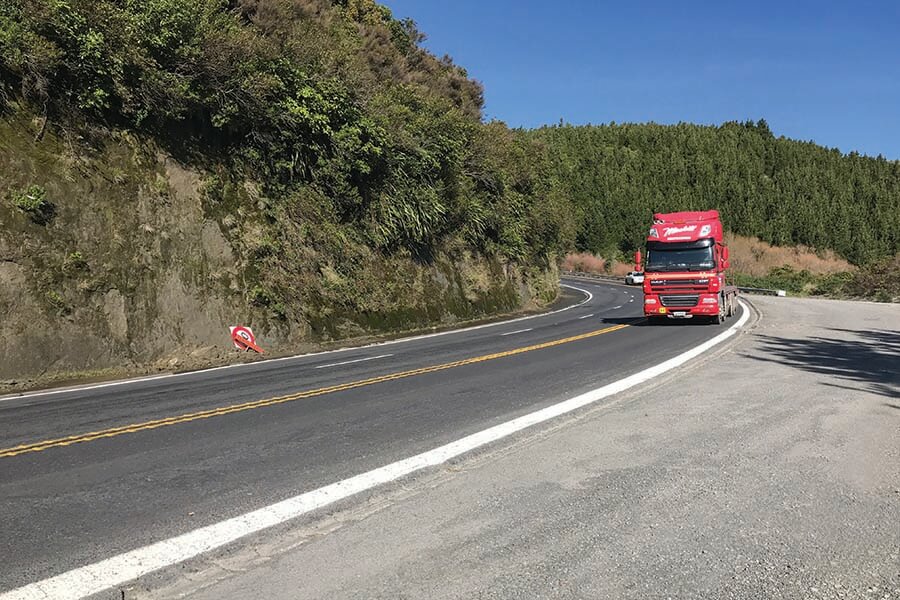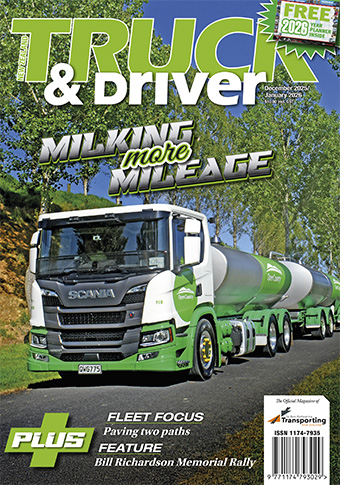Ia Ara Aotearoa Transporting New Zealand News


Slowing down the waka
“How do we make the waka go faster?” was a phrase that used to be heard a lot when the relationship between Government and the economy was front-of-mind, with Government ministers and senior officials.
Basically, it emphasised how Government through regulatory or policy means could help the business sector be more productive and therefore, help grow the economy to benefit more people.
Unfortunately, ‘how do we make the waka go faster?’, has gone the way of the moa and is now totally extinct. In fact, the mere utterance of it from a senior public servant would probably elicit a stern ‘please explain’ from their political masters in the beehive.
Private sector success and economic growth have not just fallen out of fashion in Wellington, they have become concepts so undesirable that they are actively used as a stick to beat the Government’s heartless opponents with.
Road transport, probably more than any other sector, is exposed to even the smallest economic corrections and it is therefore critical that the Government understands the commercial consequences of its decisions.
...“How do we make the waka go faster?” was a phrase that used to be heard a lot when the relationship between Government and the economy was front-of-mind, with Government ministers and senior officials.
Basically, it emphasised how Government through regulatory or policy means could help the business sector be more productive and therefore, help grow the economy to benefit more people.
Unfortunately, ‘how do we make the waka go faster?’, has gone the way of the moa and is now totally extinct. In fact, the mere utterance of it from a senior public servant would probably elicit a stern ‘please explain’ from their political masters in the beehive.
Private sector success and economic growth have not just fallen out of fashion in Wellington, they have become concepts so undesirable that they are actively used as a stick to beat the Government’s heartless opponents with.
Road transport, probably more than any other sector, is exposed to even the smallest economic corrections and it is therefore critical that the Government understands the commercial consequences of its decisions.
Every time businesses get whacked with higher compliance or labour costs it is like the Government pressing on the economy’s brake pedal. Often, they get away with it because kiwi businesses are resilient and resourceful and find ways to do make do with less, however, there is a limit.
The lowering of speed limits across large swathes of our roading network is a classic case where Government has sought a simple solution to a complex issue and has not considered the everyday impact it will have on businesses, communities and the economy.
We are told that lowering speed limits will fix our appalling road toll despite the fact that New Zealand’s high accident rate actually has a lot to do with the poor state of our roads and road surfaces, and the poor decisions people make while driving on them.
Anyone who has been on the road over the holiday period will be aware speed is an issue, but not the legal speed limit, rather it is the impatient few going well over the average traffic speed and forcing an unsafe passing manoeuvre on the wrong side of the road. Slowing all other traffic down is not going to stop this.
Lowering regional speed limits is, however, an easy sell for Wellington bureaucrats who have little regard for people who don’t live in our major cities or any understanding of the time-sensitive nature of moving goods around the country.
It is impossible to overstate the importance of roads to the New Zealand economy. Ninety-three percent of all the food and goods we consume and export are moved on our roads and much of that, whether it be logs, milk or other primary produce starts its journey on regional roads.
This is, of course, an uncomfortable fact for policymakers in Wellington, who with little interest in ‘making the waka go faster’ would love nothing more than to find a way to force more freight on to slow and uneconomic rail.
Just before Christmas, Waka Kotahi announced that the speed limit along most of State Highway 5, Napier – Taupo, would be permanently lowered from 100km/h to 80km/h. Needless to say the local community as well as businesses who rely on the route did not agree with the decision and do not believe they have been heard during the consultation process.
Twenty percent of the 4000 vehicles that use State Highway 5 each day are trucks carrying critical freight and it doesn’t take much maths to work out that the time added to those journeys will have a significant impact on freight timetables and businesses right across the Central North Island.
It is extremely disappointing that the lessons from the incredibly-successful community-led Stay Alive on 5 campaign – launched at the end of 2020 – have not been learned by Waka Kotahi. Extra policing to prevent dangerous driving combined with repairs to key sections of the road coincided with 15 months where there were not any deaths.
The reality is the only roads in New Zealand that will stay at 100km/h are those with a median barrier. If we were serious about safety, we would be spending the $4 billion a year the Government receives in levies from motorists and committing to an extensive upgrade of high-risk regional roads and highways, improving road surfaces and maintenance, and addressing driver behaviour.
Instead, we spend large chunks of this money on walking, cycling and rail projects of dubious merit and merely slow down the one productive transport sector we have.
This policy will ultimately make the waka go slower and will significantly impact our economic productivity, the end cost to the consumer and the price of doing business with the rest of the world.



 + EQUIPMENT GUIDE - FREE
+ EQUIPMENT GUIDE - FREE
